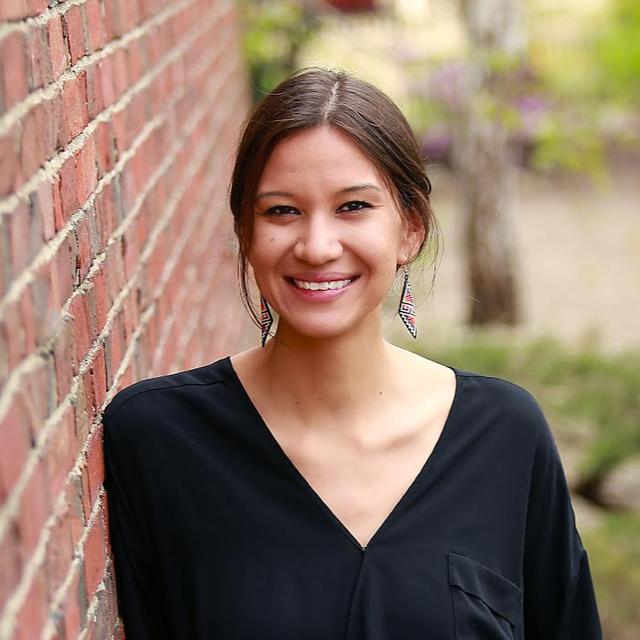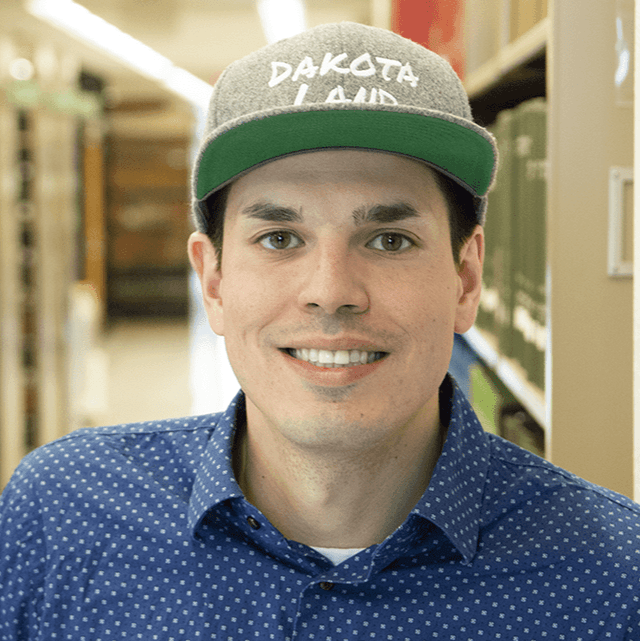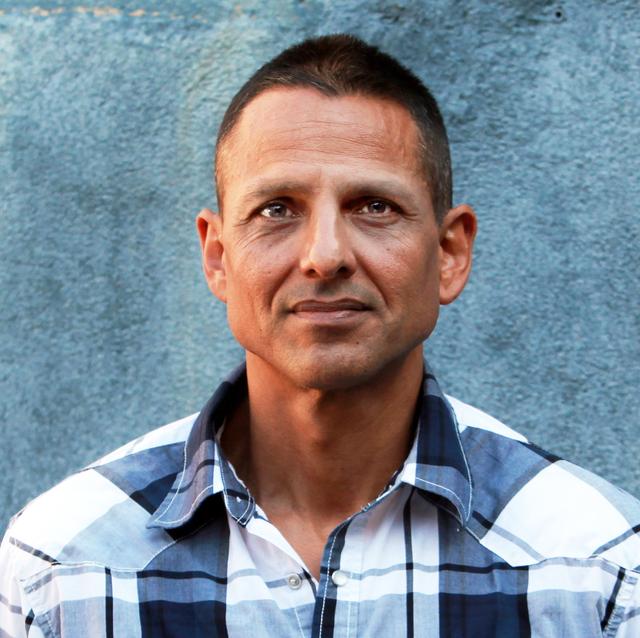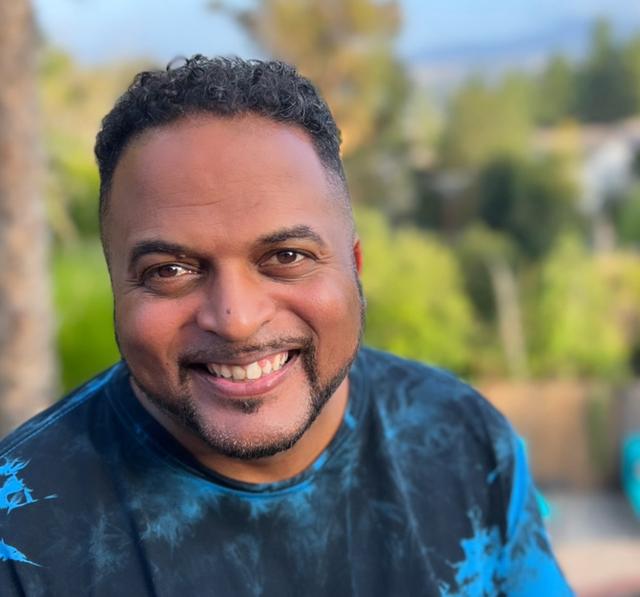Dr. Adrienne Keene is a citizen of the Cherokee Nation and a distinguished scholar, writer, podcast host, and activist. She is passionate about reframing perceptions of contemporary Native cultures and communities. Dr. Keene is the creator of Native Appropriations, a widely acclaimed blog that addresses cultural appropriation and stereotypes of Native peoples in fashion, film, music, and other aspects of pop culture. She is also the author of Notable Native People: 50 Indigenous Leaders, Dreamers, and Changemakers from Past and Present (Penguin Random House/Ten Speed Press), and co-hosts the popular podcast All My Relations with Matika Wilbur (Swinomish and Tulalip), which explores what it means to be Native in the 21st century through a lens of relationality.
Through her writing and activism, Dr. Keene challenges and critiques the representation of Indigenous peoples, urging celebrities, large corporations, and designers to thoughtfully consider their use of "Native" elements in their work. She is particularly interested in how Native peoples utilize social and new media to combat misrepresentations and present counter-narratives that accurately reflect Native cultures and identities.
Dr. Keene is a former professor at Brown University. She earned her BA from Stanford University in Native American Studies and Cultural Anthropology, and her doctorate from the Harvard Graduate School of Education in Culture, Communities, and Education. Her research focuses on college access for Native students and the impact of pre-college access programs on their success. She is deeply committed to research methodologies that empower Native communities and elevate Native voices and perspectives, with the ultimate aim of improving educational outcomes for Native students.
A highly sought-after speaker, Dr. Keene has delivered presentations at numerous campuses, non-profits, and companies nationwide, as well as at major conferences, including keynoting at the National Conference on Race and Ethnicity in American Higher Education (NCORE).
Building Indigenous Futures: Serving Native Students in Higher Education
What is the power and potential of higher education for Indigenous nations? How are non-Native colleges and universities currently not meeting the needs of Native students? We will discuss the power and potential of higher education for Indigenous nations, as well as the ways non-Native colleges and universities are currently not meeting the needs of Native students. Using research-backed context and statistics, Indigenous higher education scholarship and theory, and Dr. Keene’s experiences as one of the only Native faculty members on campus, we will build an understanding of the history, current needs, and spaces of possibility for Indigenous students in college. We will cover the importance of building a relationship to the lands you occupy beyond a land acknowledgement, identifying, admitting, retaining, and supporting Native students when data is scarce and Indigenous identity is seemingly complex, the importance of Native representation at all levels of university life, and the ways universities can support Native nation building.
Colleges can be one space for supporting the building of Native futures, but it will require fundamental shifts in the ways institutions understand their settler colonial foundations and their responsibilities to the land and the students who come from it.
From Tonto to Reservation Dogs: Native Representations, Popular Culture, and Cultural Resistance
This presentation delves into the concepts of stereotypes and cultural appropriation of Indigenous cultures. We will look at the ways Native peoples are represented throughout popular culture: Hollywood, sports mascots, fashion, and more--and discuss the way that Native peoples are creating new narratives through Native-made media. Participants will walk away with tools of how to talk about the harms of cultural appropriation, but also the best ways to incorporate Native design and media respectfully. We will pull upon social science research, including the my study “Native Voices on Native Appropriation”, the first large scale survey done with Native participants on multiple types of cultural appropriation, to build a case as to why these instances are harmful, are part of settler colonialism, and that the majority of Native peoples feel strongly about stopping appropriation--contrary to many media narratives.
Moving Beyond Land Acknowledgements & Token Representation
More and more, universities, organizations, and companies are drafting and implementing Indigenous land acknowledgement statements and media makers are hoping to incorporate Native representations into their work. But how do we make sure that these attempts at recognition and representation don't stop at check-boxes or symbolic work, or become token inclusion without meaningful change? In this presentation, Dr. Keene discusses the history and context of these current movements and examines case studies of how to move beyond the token or symbolic and into deeper, sustainable change.
The Strange Case of the Hipster Headdress: Reclaiming Indigenous Representations
From Hollywood portrayals to invisibility in national conversations on race and inequality, throughout the history of what is currently known as the United States Native peoples have been misrepresented, stereotyped, and erased. But now, through the internet, social media, and streaming platforms, Indigenous activism around issues of representation and identity have gained traction and visibility. This presentation explores the ways Native peoples have harnessed the power of storytelling through social media to change perceptions, make our communities visible, and tell our own modern, diverse stories in our own voices.
Workshop for Indigenous undergraduates: Creating Our Own Indigenous Education Futures
This workshop, designed for Indigenous students but adaptable to mixed audiences, guides students through the process of imagining and working toward a decolonial Indigenous education future. We will first build an understanding the colonial foundations of western higher education, from government run boarding schools to the present, then explore the potentials of Indigenous Futurisms and AfroFuturist work for imagining a world beyond settler colonialism, and finally engage a process of designing and sharing their own vision for an Indigenous education future where the lifeways, needs, knowledges, of their community are centered. Students will leave with action items to make parts of their vision a reality today.
Workshop for College/University admission offices: Demystifying Indigenous Students in the Application Process
This workshop will provide an overview of Native (American Indian, Alaska Native, and Native Hawaiian) students in the college application process, providing context on identity and belonging, understanding tribal sovereignty and citizenship/enrollment, the impact of settler colonialism on Native communities, and current statistics of college applications and enrollment. We will discuss barriers to access, strategies of recruitment through relationships, possible non-profit partners, the challenges and shortcomings of common application and other race-based identity check boxes for Native students, the importance of ongoing support, and more. Depending on time allowed, the workshop can be expanded to include application case studies. Dr. Keene is a former undergraduate admission officer and Native recruiter.
Workshop for College and University student services: Serving Native students in Higher Education
Using strategies and findings from higher education social science research, this workshop is designed for campus student services administrators to understand the needs of Native students on college campuses, how they may differ from other students of color, and the responsibilities of colleges and universities to serve the students who come from the land they occupy. We will work to identify areas of strength and potential areas of growth for supporting Native students particular to your campus, as well as ways to engage and build relationships with your local tribal nations.
Other speech topics include:
- Notable Native People: Indigenous Leaders, Dreamers, and Changemakers from History and Today
- Learning to Lead from Behind a Keyboard: Representations, Activism, and Native Appropriations
- Cultural Appropriation in Fashion and Pop Culture: What is it and why does it matter?
- College Pride, Native Pride: Native Student Experiences in College
Dr. Keene is also open to any other topics on Native representations, stereotypes, mascots, social media activism, or cultural appropriation; as well as the experiences of Native students in college environments. She is happy to adapt any speech topic or workshop to your needs.









